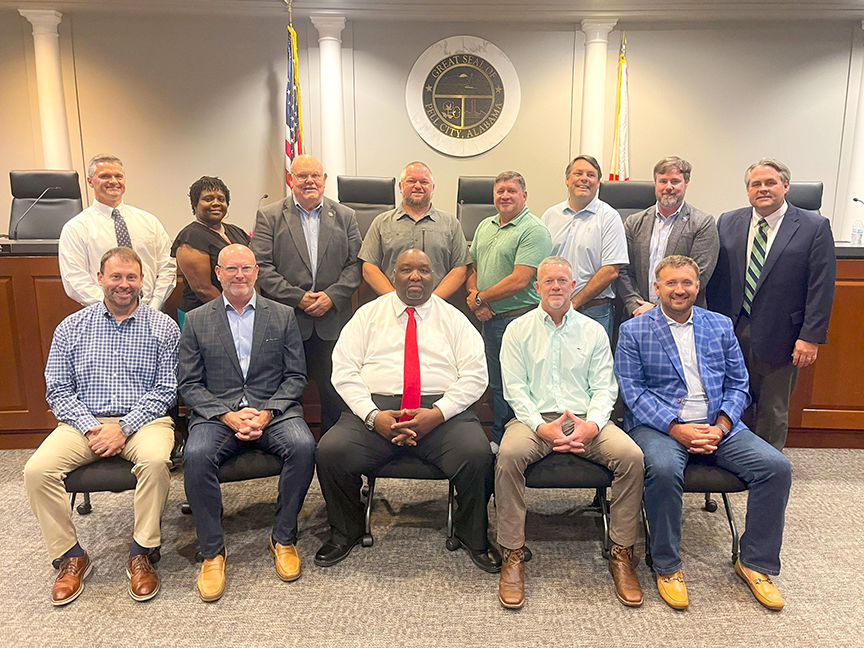Massachusetts anti-abortion coalition wants ban on state funding
Published 7:15 am Thursday, July 6, 2017
BOSTON — Anti-abortion activists in Massachusetts have lobbied unsuccessfully for years to eliminate state funding for Planned Parenthood and other groups whose services include terminating a pregnancy. Now a coalition wants to let voters decide.
Led by state Rep. Jim Lyons, R-Andover, activists opposed to abortion are gathering signatures to put a question on the November 2020 ballot asking voters to overturn a 1981 Supreme Judicial Court ruling requiring the state to fund abortion services.
That ruling holds that because the state provides medical coverage through its Medicaid programs to eligible women for births and other reproductive services, it must also provide coverage for abortions.
But with a political tide in Washington turning against public funding for abortions, opponents say Massachusetts should no longer be devoting limited state money toward it.
“Why would we possibly be spending our tax dollars for the destruction of human life?” Lyons said. “There are all kinds of other health agencies throughout the state where we could use that money. We believe as a society, we can do more for women and children.”
The Alliance to Stop Taxpayer Funded Abortions, which includes anti-abortion activist and former Republican state committeewoman Chanel Prunier, filed the ballot initiative with Attorney General Maura Healey’s office last week.
It faces an uphill battle just to go to voters.
If Healey certifies the question, supporters must gather the signatures of 64,750 registered voters. They also need approval for the ballot question from at least 50 lawmakers of the 200-member Legislature in two successive constitutional conventions.
The proposed amendment would not eliminate state funding for reproductive services, but it would give lawmakers the authority to decide whether to spend that money.
The initiative is strongly opposed by groups including Planned Parenthood, which offers reproductive health care and contraception to 31,000 patients in the Bay State.
Jennifer Childs-Roshak, president and CEO of the Planned Parenthood League of Massachusetts, called the initiative an “attempt to create unnecessary, discriminatory, and costly barriers that jeopardize women’s health to make a political point.”
“A woman’s decision about whether or not to end a pregnancy should be based on what she knows is best for her and her family — not what politicians will allow her insurance plan to cover,” she said.
Rebecca Hart Holder, executive director for NARAL Pro-Choice Massachusetts, said the move is part of a broader national strategy to ban abortion.
“They’re chipping away at state protections as part of their long-term, anti-choice agenda,” she said. “But the fact is that women deserve to make personal and private medical decisions without interference from anti-abortion extremists or politicians.”
President Donald Trump, a Republican whose election was backed by anti-abortion groups, has pledged to appoint conservative justices to the U.S. Supreme Court who will overturn Roe v. Wade and let states decide whether to legalize abortion.
In April, Trump signed legislation that eliminates a federal rule blocking states from defunding health care providers for political reasons.
The rule — put in place by Trump’s predecessor, President Barack Obama — prohibited states from withholding federal family planning funding to women’s health providers, even if they perform abortions.
Republicans say reversing the rule gives states power to decide how they want to use the money, while Democrats say it’s just another swipe at Planned Parenthood.
The Republican-led plan to repeal the Affordable Care Act also would defund Planned Parenthood for a year by blocking Medicaid reimbursements to the organization.
“Studies show the best way to reduce the abortion rate is to stop subsidizing it,” Tom Harvey, a Newton lawyer and chairman of the Alliance to Stop Taxpayer Funded Abortions, said in a statement. “Instead of trying to make abortion quick and easy and free, we as a society owe it to women to help them choose life instead.”
Gov. Charlie Baker, a pro-choice Republican, said he is prepared to fund family planning services with state dollars if Congress cuts off Medicaid funding.
The Hyde Amendment passed by Congress in 1976 prohibits the use of federal money for abortions except in cases of rape or incest, or to save the life of the mother.
Abortion providers are reimbursed for services through federal and state Medicaid payments.
In fiscal year 2016, the state spent $5.7 million on family planning through MassHealth, which included contraception, treatment and tests for sexually transmitted diseases, cancer screening and abortions, according to the Executive Office of Health and Human Services.
The state agency didn’t have a breakdown of spending specifically for abortion services.
Laws dealing with Medicaid coverage for abortions vary by state.
At least 17 states — including Massachusetts — have specific policies that direct Medicaid to pay for all or most medically necessary abortions, according to the National Women’s Law Center, an advocacy group.
But 33 other states — including Maine and New Hampshire — withhold Medicaid coverage from women who need abortions, the group said.
Congress has banned the District of Columbia from using local funds to provide abortion services for women enrolled in Medicaid.
Overall, the number of women seeking abortions in Massachusetts appears to be falling.
There were 18,570 abortions performed in the state in 2015, according to the most recent figures from the state Department of Public Health. That’s down 11 percent from 2010 when hospitals, clinics and physicians reported 20,802 abortions to health officials.
Planned Parenthood and other groups say they will fight efforts to eliminate the state’s protections.
“Every woman should have the ability to make decisions about her health and abortion without barriers,” Childs-Roshak said. “We will not allow politicians to wedge themselves between any woman and her doctor and interfere with her ability to make these personal decisions.”
Christian M. Wade covers the Massachusetts Statehouse for North of Boston Media Group’s newspapers and websites. Email him at cwade@cnhi.com.




